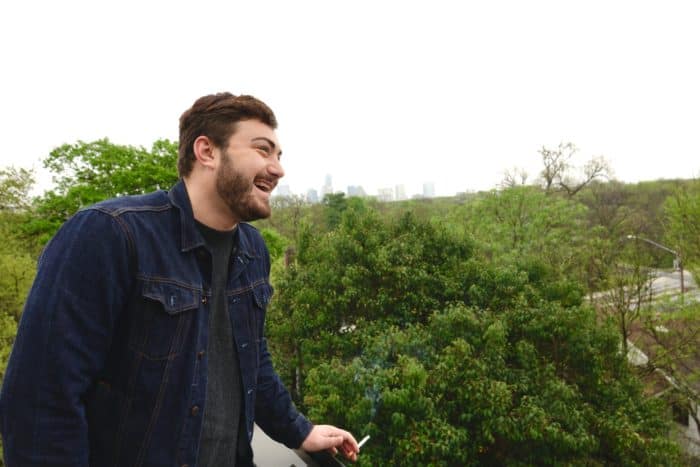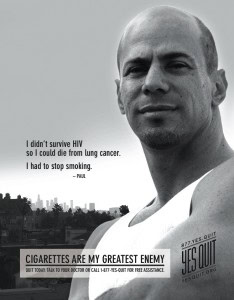Like many 20 somethings, Henry grew up knowing that he shouldn’t smoke. In elementary school, he remembers being told “smoking is bad for you”, “it causes cancer.” We know that he got the same message as the rest of his peers. In the LGBT community, however, we smoke at a disproportionally higher rate ( 1 in 5) as compared to in our peer community of straight adults (1 in 7). Why do we still smoke and what will it take for us to quit smoking?
LsGs Texas Smoking from L Style G Style on Vimeo.
Meet Henry. Henry feels as though it was inevitable that he would become a smoker. As a third grader, his favorite movie was Grease. His favorite character? Rizzo. As an aloof character, Henry found her completely fascinating. He looked to emulate that personality, smoking and all.
At fourteen, Henry tried his first cigarette. He and his two friends snuck off to a park by his house to try the cigarette they had stolen from one of their older sisters. That first puff, Henry recalls, was a little gross, made him feel sick. At the same time, young Henry also kind of liked the feel of it.
A few years later, his smoking had progressed to having a cigarette with friends while he was at parties. By this point, cigarettes had become a social partner, something that made him feel less uncomfortable. As social situations introduced Henry to people he did not know, the cigarettes and smoking gave him a sense of control.
In college, as the exposure to new, strange and sometimes uncomfortable situations increased, so did Henry’s smoking. On a college campus, many of us experience newfound freedom, but also newfound anxiety:
It is a new place. A different group of people. You are nervous all the time because you are 18 and just starting out and don’t know anyone.
Henry admits that it became a great defense. Something that many young LGBT people often look for…a control in social situations that have the potential to become uncomfortable. Smoking gave Henry the ability to remove himself from conversations with the excuse to step outside to have a cigarette. It even gave him the ability to feel a bit “mysterious” by pushing people away and remaining distant. That sense of being able to somewhat control his environment became important as Henry admits being “wickedly insecure” about who he was and how other people were potentially judging him about being gay.
Smoking was a way for me to feel in control, to have an excuse to leave if I was uncomfortable and a way to be distant.
The reverse was also true for Henry. He now had the ability and a reason to insert himself into social situations with other smokers. On a superficial level, he knows that if he sees a group of people smoking and seemingly having a good time, joining them for a cigarette is “an in.” Much like many smokers, Henry knows he can quickly become a part of a group by asking for a light. In fact, over half of the people he now counts as close friends are smokers. It was mostly because of smoking that they had the opportunity to meet.
Why Quit? from L Style G Style on Vimeo.
Henry struggles to quit smoking. He tried the “patch” which lasted about a week. He admits that he is guilty of every other excuse that everyone shares on why they were not able to successfully quit smoking. The aspirational reasons to quit range from wanting to get fit and lose weight to meet a boy to wanting to make someone else happy. He has never wanted to quit for himself and he knows that will be the best reason there is to find his health and happiness again.
For more information and statistics surrounding smoking including resources to help smokers quit, please visit yesquit.org.






































